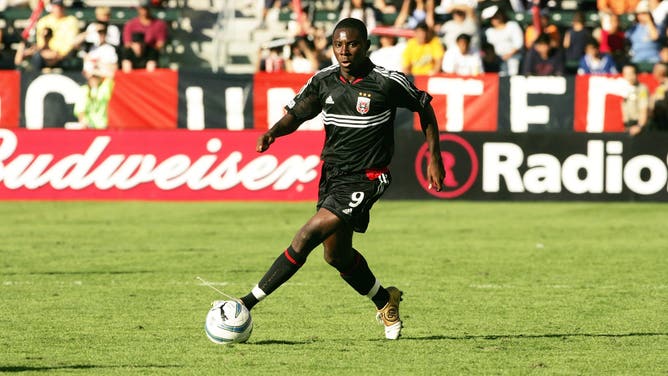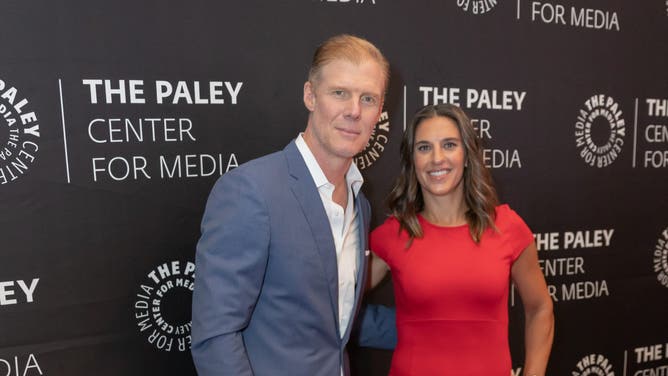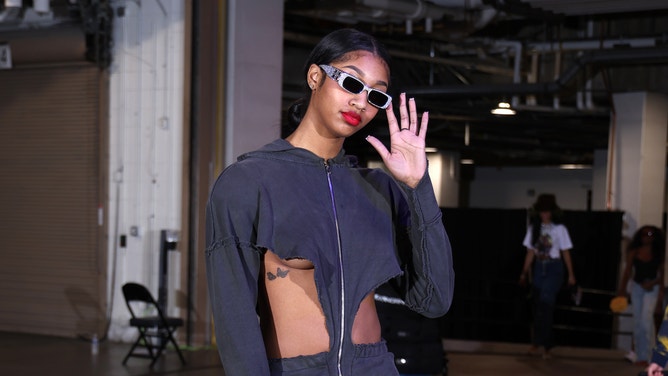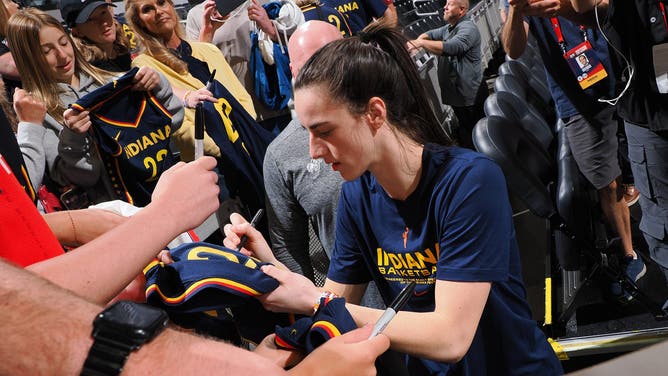Alexi Lalas Compares Caitlin Clark To Freddie Adu, Says MLS More Welcoming Than WNBA
The WNBA is seeing an explosion in popularity, thanks in large part to the arrival of Indiana Fever rookie, Caitlin Clark. Clark's college games drew record TV audiences for women's sports, and she helped drive record viewership for the WNBA.
People in and around the WNBA believe that the league is here to stay. It might be, but we don't know that. The league certainly caught fire with Caitlin Clark, but there's no guarantee that she keeps the public interest for years to come.
We've seen things like this before in sports. Surely, when Muhammad Ali and Joe Frazier were battling for the heavyweight belt, people thought boxing would continue to rule the American sports world. It didn't. It came back when Mike Tyson came around and then mostly went away again.
Another example can be found in American soccer. In 2004, Freddy Adu was drafted by D.C. United. Adu became the youngest athlete in American history to sign a professional contract, at just 14 years old.

Former USMNT player Alexi Lalas compared Freddy Adu (pictured) joining the MLS in 2024 and Caitlin Clark being drafted into the WNBA this year.
(Stephen Dunn/Getty Images)
Someone who remembers that time well is Alexi Lalas. Lalas played in the MLS from inception (1996) until just before Adu arrived. Lalas retired Jan. 12, 2004 four days before United drafted Adu.
However, Lalas immediately stepped into a front office role with the San Jose Earthquakes and worked for several teams around the league from 2004-08, accounting for the early part of Adu's career.
Lalas posted an interesting comment on X (formerly Twitter) about how US Soccer – which has seen wild swings in popularity throughout its time – is viewing what is happening with Caitlin Clark and the WNBA.
"American soccer is laughing at this WNBA ridiculousness," Lalas wrote. "We've long dealt with momentary mainstream surges of interest/popularity. You can insecurely gatekeep and kill the golden goose, or you can open the tent wider. It always fades, but if you're smart, you're left better off than when it started."
That post piqued my interest, so I reached out to Lalas to see if he could expand on that thought. Initially, I thought he might be talking about "Messi Mania," which is sweeping the MLS right now. But he brought up Adu, a name I hadn't heard in two decades.
"I think Messi benefits from being seen as the GOAT. He was already established, which gives him reverence," Lalas told OutKick.

Former US Soccer players Alexi Lalas and Carli Lloyd.
(Joy Malone/Getty Images)
"A better comp would be Freddy Adu. When he came into the MLS at 14 years old, there was certainly some level of understandable resentment from some players, but that didn’t manifest on the field in terms of players trying to go out of their way to hurt him, especially off the ball.
"There was also protection from his teammates," he continued. "Overall, there was an understanding and respect that the attention (temporary as it may have been) was ultimately good for the league, the sport, and the players."
That's an interesting perspective from someone who experienced something similar. Lalas made the point that the WNBA players don't seem to be grasping the bigger picture as well as he feels the MLS players in the 2000s did. Though, he did admit that US Soccer certainly isn't free from having poor moments of its own.
"I think MLS players, in general, handled the Adu situation with much more maturity and perspective than the WNBA players," Lalas said. "Having said that, there are plenty of times when American soccer, which encompasses much more than MLS, has eaten our own."
Lalas called this a "human reaction." It's hard to disagree with that sentiment. I don't necessarily blame the women of the WNBA for their very human emotions, but they should try to get over it quickly and look at the macro instead of the micro.
As I stated in the introduction, there's this prevailing thought that the WNBA is just popular now. It's popular at this moment, so that's how it will stay. Read what Angel Reese said this week:
"I'll go down in history," she said. "I'll look back in 20 years and be like, ‘yeah the reason why we watching women’s basketball was not because of one person, it's because of me, too.'"

Angel Reese is benefitting greatly from the Caitlin Clark effect and the rising profile of the WNBA.
(Jeff Haynes/NBAE via Getty Images)
She did go on to say other players have played large roles, as well. That's all well and good, but are we going to look back in 20 years and think "Man, Angel Reese really changed the course of women's basketball in America." Maybe.
But it's been 20 years since Freddy Adu made his debut in the MLS. Does anyone think he changed the course of American soccer, as many people thought he would at the time?
I didn't even know what Freddy Adu had been up to over the past decade. As far as I can tell, he bounced around the world trying to get onto different soccer teams but never really made much impact.
He played his last full soccer season in the USL in 2018 for the Las Vegas Lights. He briefly joined a Swedish club in 2021 after two years away from the game, but never made an appearance and that was the end of his professional playing career.
According to an article from CBS Sports in 2023, "While Adu hasn't officially retired [from soccer], he's now helping coach other kids to help them avoid some of the mistakes that he made when he was younger."
Caitlin Clark is going to go down in history because she's already made history. She's the all-time leading scorer in college basketball, man or woman. Thanks to her popularity, players like Angel Reese are getting a lot of attention that they didn't expect to get.

Caitlin Clark has helped boost the WNBA into a new stratosphere in 2024.
(Ron Hoskins/NBAE via Getty Images)
But I would argue that popularity is much more likely to slide by the wayside as time goes on than it is to suddenly catapult itself into a dominant American cultural force. Because of that, I don't begrudge any of these women for trying to cash in on their popularity.
Take a lesson from Freddy Adu, though, ladies. Just because it's here now doesn't mean it's here forever. Enjoy it while you can, and maybe it won't end. But if it does, make sure you can look back and think you got everything possible out of that time.